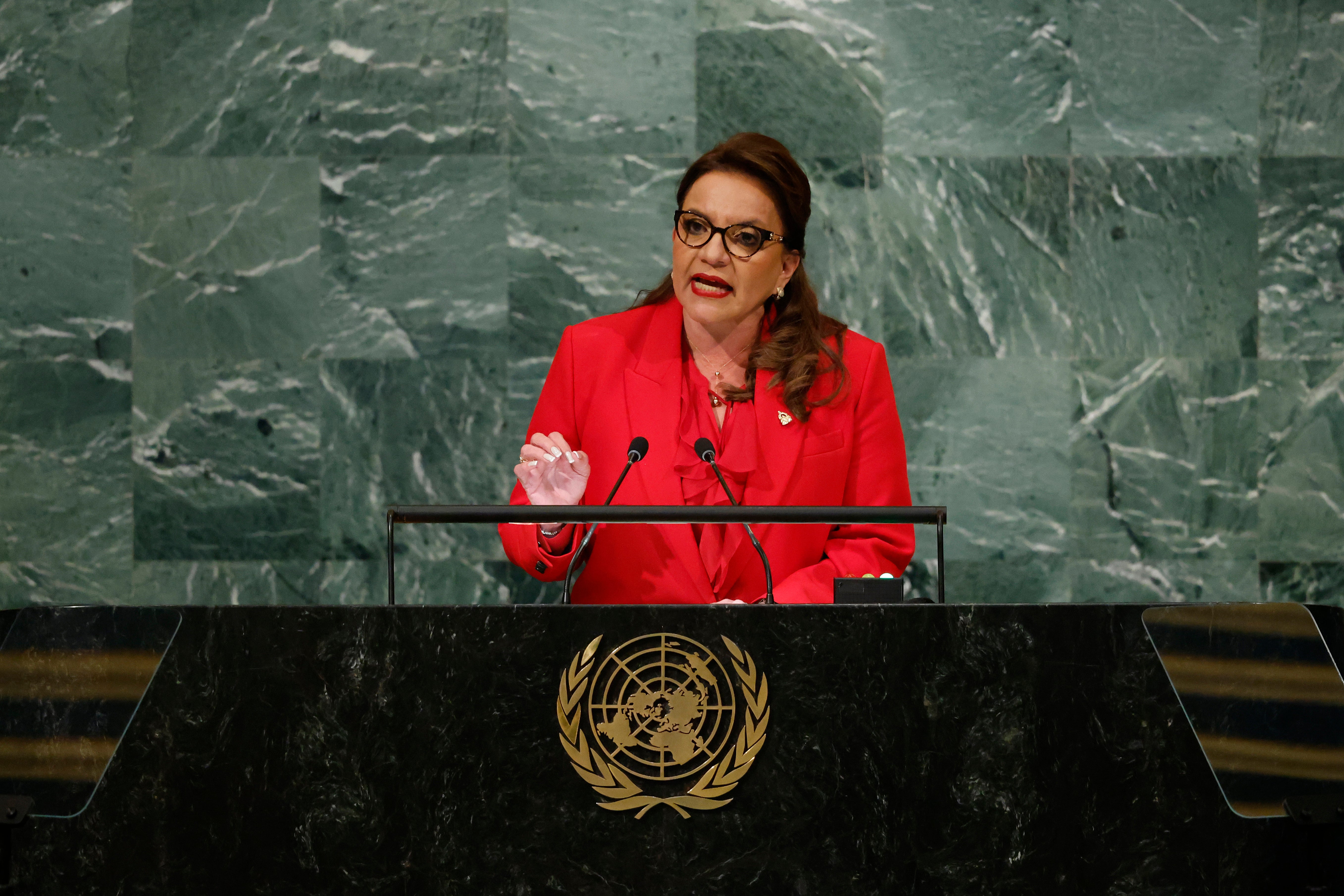Honduras suspends rights in 2 big cities amid gang crackdown
Honduras has become the second country in Central America to impose a state of exception suspending some constitutional rights to deal with street gangs

Your support helps us to tell the story
From reproductive rights to climate change to Big Tech, The Independent is on the ground when the story is developing. Whether it's investigating the financials of Elon Musk's pro-Trump PAC or producing our latest documentary, 'The A Word', which shines a light on the American women fighting for reproductive rights, we know how important it is to parse out the facts from the messaging.
At such a critical moment in US history, we need reporters on the ground. Your donation allows us to keep sending journalists to speak to both sides of the story.
The Independent is trusted by Americans across the entire political spectrum. And unlike many other quality news outlets, we choose not to lock Americans out of our reporting and analysis with paywalls. We believe quality journalism should be available to everyone, paid for by those who can afford it.
Your support makes all the difference.Honduras became the second country in Central America to impose a state of exception suspending some constitutional rights to help fight street gangs when a decree took effect Monday.
The extraordinary measures target the capital Tegucigalpa and the northern business hub of San Pedro Sula, which have both struggled under the sway of powerful gangs like Barrio 18 and MS-13.
The decree published Monday will last one month, but lawmakers will have the ability to extend it, something that has happened repeatedly in El Salvador since a state of exception was imposed in March.
The Honduran measures affect constitutional rights of association, free movement, searches and arrests. The decree by President Xiomara Castro's government gave as justification the threat to life and property posed by the gangs in both cities.
Retired National Police Commissioner Leandro Osorio said the measures would not only seek to prevent crime, but would also carry repressive actions.
“The intent is to penetrate these criminal structures to get to the (leaders),” Osorio said, noting that it would also be important to go after lesser criminals, as well as repeat offenders.
Still, Osorio said it would be difficult and require cooperation throughout the criminal justice system and all of government.
Security analyst Raúl Pineda Alvarado said Honduras’ state of exception so far pales in comparison to the all out effort in El Salvador, where President Nayib Bukele has faced international criticism for repressive tactics.
While noting that El Salvador’s example was indeed “authoritarian,” Pineda said that it was showing real results in terms of the precipitous drop in homicides.
“What is being applied in Honduras is an imitation,” Pineda said.